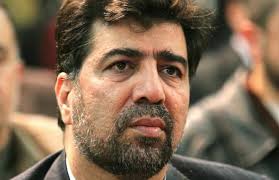The body of the senior Iranian diplomat, Ghazanfar Roknabadi, who was missing following the deadly stampede in Saudi Arabia’s Mina on September 24 has been identified.
 The body of the senior Iranian diplomat, Ghazanfar Roknabadi, who was missing following the deadly stampede in Saudi Arabia’s Mina on September 24 has been identified.
The body of the senior Iranian diplomat, Ghazanfar Roknabadi, who was missing following the deadly stampede in Saudi Arabia’s Mina on September 24 has been identified.
Roknabadi, 49, who was attending the annual Muslim gathering, was among Iranians who remain missing following the stampede, which killed at least 460 of the Islamic Republic's citizens.
The DNA tests and evidences confirm that the senior diplomat was killed in the incident, an informed source said, the semi-official Fars news agency reported Wednesday.
Until last year, Roknabadi was Tehran’s envoy to Beirut, which is a highly sensitive post.
Two members of Roknabadi family are in Saudi Arabia and all DNA tests as well as investigated photos and evidences indicate that the body belongs to the former diplomat, according to the source.
Roknanadi’s body will be transferred to Iran on Thursday and final DNA tests will be carried out in Tehran.
Earlier there were some speculations about the possible abduction of Roknabadi in Mina.
Previously the Saudi Alarabiya TV quoted Saudi sources as saying the official records show that the name of Roknabadi does not appear among this year’s pilgrims.
If his presence during the pilgrimage is confirmed, that would mean that he has entered the country in an “unknown manner,” possibly registering with a different name and description, according to the sources.
Last September, Iran’s Culture Ministry Spokesman Hussein Noushabadi became one of the first Iranian officials to directly speak of the possible abduction of Roknabadi during the incident, saying he has surely been abducted if he is still alive.
“That the Saudis deny the presence of Roknabadi in their country shows that they are lying; they certainly know the whereabouts of important figures like Roknabadi and other friends who had participated in the Hajj ceremony and are informed of their fate, but they don’t want to speak about the realities,” Noushabadi said.